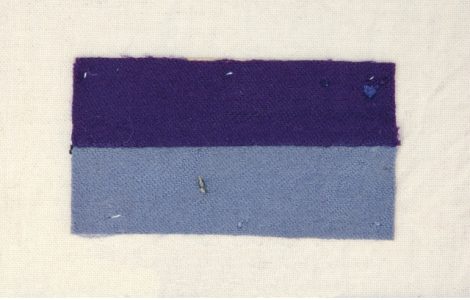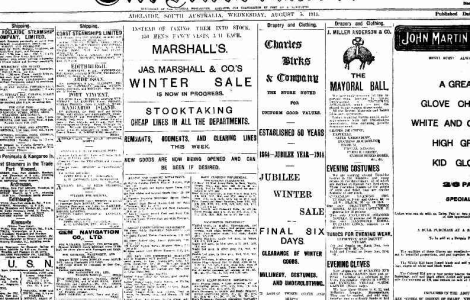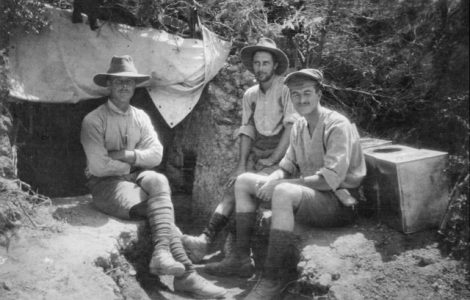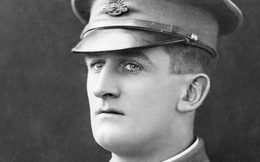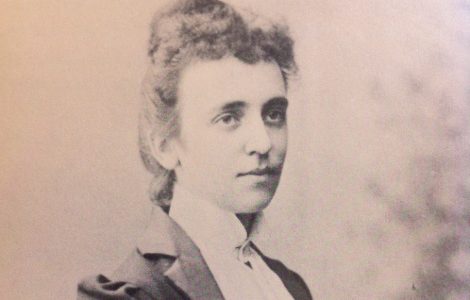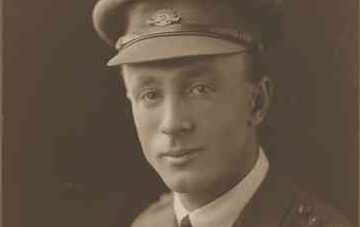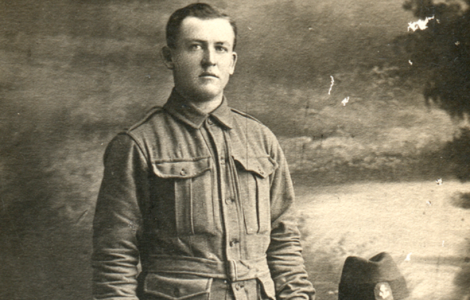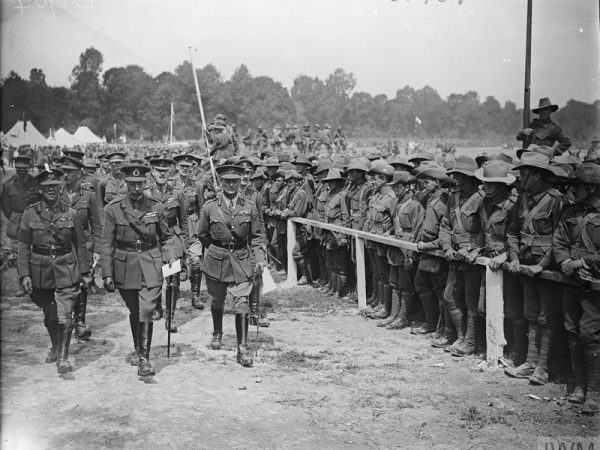

THE ROYAL VISITS TO THE WESTERN FRONT, 1914-1918 (Q 5639) King George V with General William Birdwood during his visit to an Australian Sports Meeting, Henencourt, 12 July 1917. Copyright: © IWM. Original Source: http://www.iwm.org.uk/collections/item/object/205237757
July, 1917
July 1917 was a relatively quiet month for our soldier correspondents, as the European summer progressed. There is a sense both from the soldiers and from the homefront that ‘war weariness’ was having an impact.
FROM THE BATTLEFRONT
Following the events at Messines in June, planning was underway for the Third Battle of Ypres (in north western Belgium) which commenced at the very end of the month, and many of our correspondents were in transit from the Somme, further to the south.
Leo Terrell’s diary notes the ‘dreary routine’ of life on the front – occasional bombings, gas shells and artillery, but also periods of quiet.
For the 10th Battalion, a key date was 8 July, when a memorial was unveiled at Pozieres, where they had lost so many lives in July 1916. And four days later, they were inspected by the King! James Churchill-Smith also saw the King and the Prince of Wales, as they drove past. Later in the month, the King announced that he was formally changing the name of the Royal house – from Saxe-Coburg to the now-familiar Windsor.
Lou Avery’s month began well – he attended a school reunion dinner in Amiens; an entertaining evening with old St Peters and Prince Alfred College boys. His diary tells us that his leave pass expired at 7.30pm and that the last train left at 8, but that he remained until the end, at 10pm, before hitching a lift back to camp with an ambulance. Luckily for him, he got away with returning late. He celebrated his birthday later in the month with ‘4 of my pals’ and two bottles of champagne.
Ross Smith’s diary notes that on 1 July he graduated as a pilot and then started at the school of Aerial Gunnery. two weeks later, he began flying tactical reconnaissance in the Middle East.
BEHIND GERMAN LINES
Meanwhile in Germany, Ethel Cooper was making progress in her quest for a pass which would allow her to leave Germany. After three years of living behind enemy lines, she was informed that the police had her pass, but that they did not yet have permission to give it to her. All this is recorded in weekly letters to her sister, which she cannot send – instead, she hid them at her friend, Frau Jaeger’s house.
IN SOUTH AUSTRALIA
At home in South Australia, winter rains caused significant flooding, particularly in the western suburbs. Australia Day was celebrated on 27 July, and was yet another opportunity for more patriotic fundraising. Wounded soldiers continued to be repatriated: an article in the Advertiser details an event at which a thousand soldiers were entertained by the ladies of the Red Cross and Cheer-Up Society. The suitability of land selected for soldier farming settlements was also in the news, as problem of how to provide a living for invalid soldiers was becoming more pressing.
The All-British Society held a ‘Patriotic Rally’, and the paper reports that German people were ‘discussed in very uncomplimentary terms’.
For both the soldiers and those on the homefront, the relentless war dragged on, with no prospect of imminent resolution.


